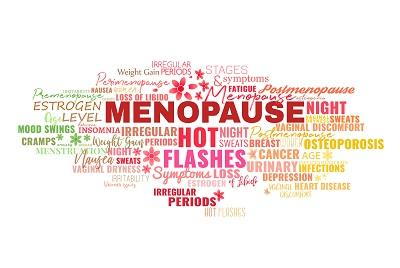Menopause is a natural event that will occur in all women at some point as they age. Menopause occurs when menstruation stops and fertility ends. Once a woman has missed her period for one year she is considered menopausal. While the age at which a woman reaches menopause varies, it’s common for this transitional period to occur between the ages of 45 and 55.
For some women, menopause causes little to no symptoms; however, other women may experience:
- Hot flashes
- Vaginal dryness
- Memory problems
- Mood swings
- Night sweats
- Insomnia
- Weight gain
- Dry skin
- Decreased libido
Some of these symptoms such as hot flashes and night sweats will go away after menopause. To reduce the frequency and severity of their symptoms, it’s important that menopausal women maintain a healthy lifestyle.
When should I see my gynecologist?
No matter your age, you should visit your gynecologist for routine checkups ever year. During these visits it’s important that you ask any questions or address any concerns you might have regarding your health. Your OBGYN is able to address everything from birth control options and fertility treatments to hormone replacement therapy.
The type of symptoms you are experiencing as well as their severity will determine whether it’s worth visiting your gynecologist or your general practitioner to rule out other conditions that could be responsible for these symptoms. As we mentioned earlier, some women go through menopause and don’t experience any issues; however, women who are struggling to get their symptoms under control should talk to their gynecologist.
If you are experiencing symptoms of menopause but you’re under 40 years old you should also schedule a doctor’s appointment to determine what’s causing your symptoms. Hormonal issues and imbalances could be to blame and they should be treated as soon as possible.
What can be done to ease symptoms of menopause?
Once a woman reaches perimenopause (the stage right before menopause) she may start to notice a heavier or irregular menstrual cycle. Sometimes your gynecologist may prescribe birth control pills at this time to treat these issues. Birth control may also alleviate vaginal dryness and hot flashes.
Hormone therapy is the standard treatment when it comes to managing menopause symptoms. For example, estrogen therapy has been know to treat hot flashes and vaginal dryness and can be administered as a cream, patch, or pill.
During menopause your gynecologist may also recommend getting a blood test to check your hormone levels. Hormone therapy isn’t right for every woman. Women who have a high cholesterol, gallbladder, or liver disease, a history of blood clots or breast cancer shouldn’t undergo hormone therapy. In this case, non-hormonal treatment options such as prescription medications like gabapentin may be able to treat mood swings, night sweats and other common symptoms of menopause.
If you are experiencing menopause symptoms it’s important to consult your gynecologist. When you come into our office we can help you determine the best methods for getting your symptoms under control. Call us today to schedule an appointment.
